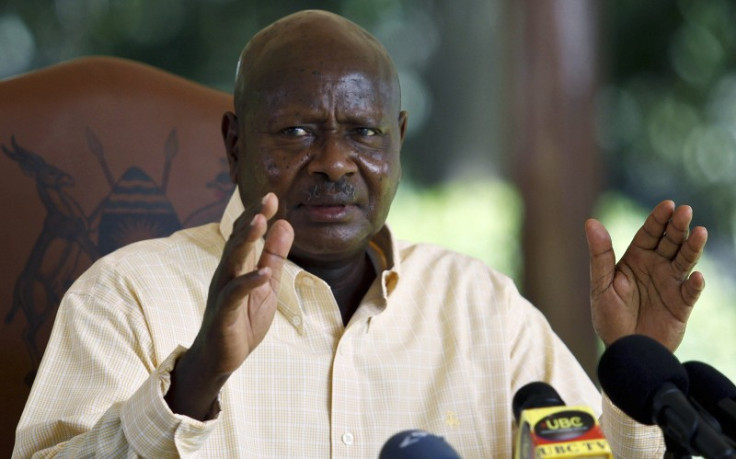Uganda President Rejects Anti-Gay Bill

Uganda's president Yoweri Museveni refused to sign an anti-homosexuality bill which was already passed by the parliament in December.
The bill proposed life imprisonment for homosexual offences.
According to the president, there are other ways to "rescue" people from their "abnormality".
In a letter to parliament, Museveni said of gays: "Even with legislation, they will simply go underground and continue practicing homosexuality or lesbianism for mercenary reasons," according to the independent newspaper Daily Monitor.
"The question at the core of the debate on homosexuality is what do we do with an abnormal person? Do we kill him/her? Do we imprison him/her? Or we do contain him/her?" Museveni was quoted as writing in the letter.
According to Museveni, homosexuality is caused by either "random breeding" or mercenary reasons; while lesbians are the consequence of "sexual starvation". And the solution to eliminate homosexuality in Uganda is to improve economic conditions.
Homophobia is wide spread in Uganda, where under existing law, anyone found guilty of "carnal knowledge against the order of nature" can already face up to life imprisonment.
Gay activist David Kato was brutally murdered in 2011 after Ugandan weekly Rolling Stone pictured his face and that of another man on its cover under the headline "Hang them!" The subhead read: "We shall recruit 100,000 innocent kids by 2012: Homos" and "Parents now face heart-breaks as homos raid schools."
The paper pledged to expose 100 gay people and printed the photographs, names and in some cases home areas, of people it claimed were gay.
Amnesty had called Musveni for a veto, defying the bill as a "wildly discriminatory legislation, which amounts to a grave assault on human rights and makes a mockery of the Ugandan constitution," according to Aster van Kregten, deputy Africa director at Amnesty International.
"Passing the Anti-Homosexuality Bill was a retrograde step for Uganda's parliament, which has made some important progress on human rights in recent years, including criminalising torture. It flies in the face of the Ugandan government's stated commitment to ensure all legislation complies with human rights," Kregten continued.
Although the president refused to sign the anti-homosexuality bill, he made clear that homosexuals will still be considered as abnormal in Uganda society and they will still have to be cured.
State repression of homosexual men in African countries ushers in a harsh new era for gays across the continent with legislation, demonisation, harassment, torture, imprisonment and denial of medical treatment on the rise.
© Copyright IBTimes 2025. All rights reserved.






















